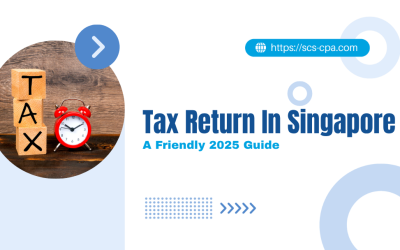Shifting the Landscape
In today’s business landscape, robust accounting and corporate secretary services aligned with regulatory compliance remain paramount. And there’s a noticeable shift happening—one that’s integrating sustainability practices into compliance strategies. This shift isn’t simply about ensuring regulatory compliance at work; it’s about making sense of the changes and navigating the challenges in your work with Singapore looking to position itself as the green finance hub in the region.
Redefining Compliance
The Emergence of Sustainability
The emergence of sustainability as a fundamental component within regulatory standards reshapes the landscape of compliance requirements. This shift is significantly highlighted by the impending release of the IFRS S1 and S2 sustainability reporting standards by the International Sustainability Standards Board, signalling the increasing significance of integrating sustainability initiatives into core compliance measures. This means that you will have to understand the implications of sustainability practices in your compliance protocols, marking a significant evolution in your role.
Understanding Growth through Sustainability
These sustainable compliance practices aren’t just about following rules; they’re the crux for driving business growth.
- Enhanced Reputation and Brand Value: When businesses show a commitment to sustainability, it’s like waving a flag to stakeholders, drawing in more customers and earning investor trust. This isn’t just about being nice—it’s about boosting brand value, grabbing a bigger piece of the market, and fueling business growth.
- Access to Capital and Investment Opportunities: Embracing sustainable practices attracts investment opportunities in the green economy, as investors increasingly consider ESG factors. Access to capital can fuel business expansion, innovation, and overall growth.
- Operational Efficiency and Cost Savings: Sustainable practices often lead to increased operational efficiency and cost savings, freeing up financial resources that can be redirected towards innovation and business expansion.
- Market Differentiation and Competitive Advantage: Companies leading in sustainability can differentiate themselves in the market, attracting environmentally conscious consumers and gaining a competitive edge.
- Regulatory Advantages and Long-Term Viability: Compliance with sustainability regulations ensures long-term viability, reducing the risk of penalties and disruptions to business operations.
Understanding sustainability gives accounting and finance professionals a broader perspective on their work. It’s like fitting together missing puzzle pieces—it allows them to see beyond the numbers and compliance tasks.
With this understanding, they can interpret the financial implications of sustainability initiatives, incorporate ESG factors into risk assessments and investment decisions, and contribute to strategic planning aligned with the company’s long-term sustainability goals.
Navigating Change and Integration at Work
Amidst the ambiguous guidelines in sustainability, swiftly adapting to this changing landscape means more than just complying; it involves leading organisational changes, managing risks, and deriving value from sustainable initiatives. To succeed in this adaptation, a thorough grasp of the latest reporting standards, understanding green finance principles, and integrating ESG into financial strategies are important.
Upskilling Becomes a Compass in this New Field
With the sustainability realm’s uncertainties, upskilling becomes pivotal. Specialised training programs and certifications in sustainability accounting and integrated reporting are essential. Government agencies are raising awareness of sustainability, while professional bodies, Institutes of Higher Learning (IHLs), and training providers focus on enhancing sustainability skills. Additionally, universities are incorporating sustainability modules into their courses to build a more capable talent pool in accounting and finance.
Leveraging Sustainability for Continuous Growth
Embracing this change enables businesses to meet escalating regulatory demands and drive innovation, create value, and adhere more comprehensively to global reporting standards.
This journey begins with equipping finance professionals with the necessary capabilities to navigate green finance complexities, integrate sustainability reporting seamlessly, and adapt proactively to evolving regulatory landscapes.
Corporate Income Tax Malaysia: Rates, Filing, and Strategic Compliance
Understand Malaysia’s corporate income tax system. Learn current tax rates, SME tiers, filing deadlines, LHDN requirements, penalties, and more.
Understanding the Core Types of Audits and Their Roles in Accounting in Singapore
Learn the key types of audits in Singapore to build trust and stay compliant. Examples are statutory, internal, GST, and forensic.
Tax Return In Singapore: A Friendly 2025 Guide
Want to be a responsible business owner? Read this guide to tax return in Singapore to help understand tax filing and play your part.




